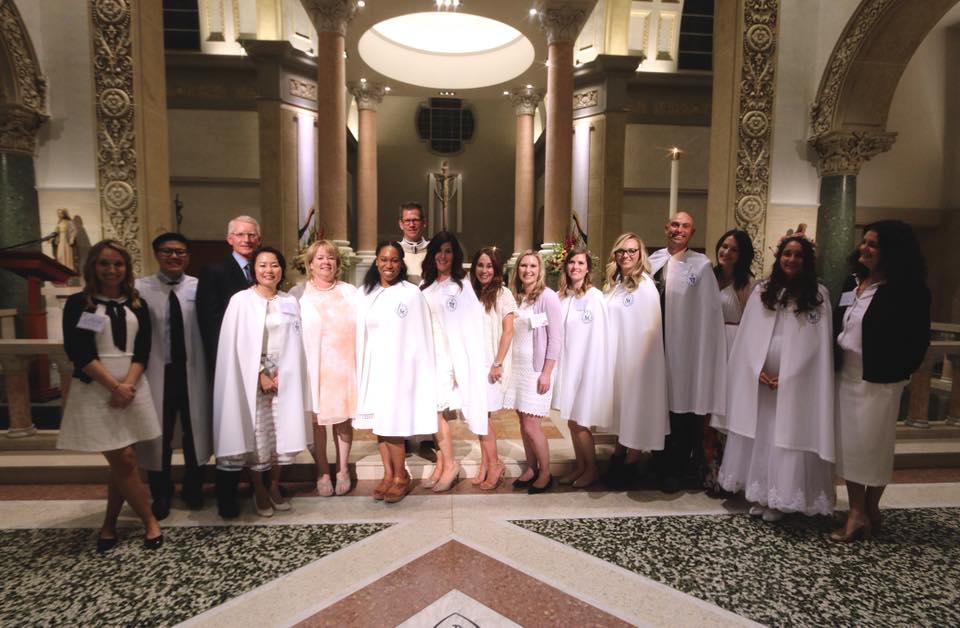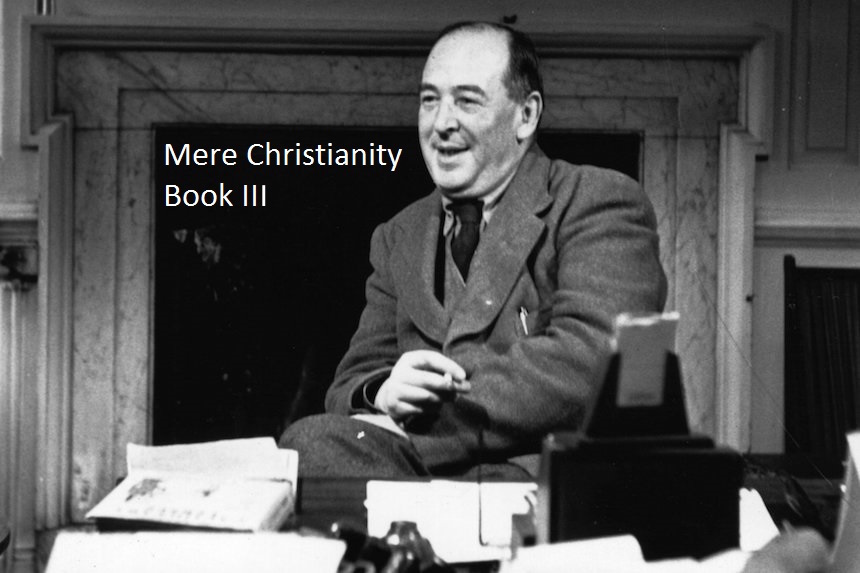C.S. Lewis: The Gateway Drug
 A delightful video of the most excellent Peter Kreeft talking about C.S. Lewis and his relationship to Catholicism…
A delightful video of the most excellent Peter Kreeft talking about C.S. Lewis and his relationship to Catholicism…
"We are travellers…not yet in our native land" – St. Augustine
 A delightful video of the most excellent Peter Kreeft talking about C.S. Lewis and his relationship to Catholicism…
A delightful video of the most excellent Peter Kreeft talking about C.S. Lewis and his relationship to Catholicism…


And so we come to the final chapter of Book III. Continuing on from last chapter, we continue to examine “faith”. This chapter focuses on faith in terms of salvation.
If you enjoy this episode, you can subscribe manually, or any place where good podcasts can be found (iTunes, Google Play, Podbean, Stitcher and TuneIn).
Please send any objections, comments or questions, either via email through my website or tweet us @pintswithjack. Be sure to follow our new Instagram account!
Episode 25: “Faith” (Part 2) (Download)
Audio Player

For the last two chapters of Book III we will be looking at the final theological virtue of “faith”. This chapter focuses on faith in terms of holding onto rational truths despite raging emotions.
If you enjoy this episode, you can subscribe manually, or any place where good podcasts can be found (iTunes, Google Play, Podbean, Stitcher and TuneIn).
Please send any objections, comments or questions, either via email through my website or tweet us @pintswithjack. Be sure to follow our new Instagram account!
Episode 24: “Faith” (Part 1) (Download)
Audio Player

This is the second of two talks I gave during Lent at a parish in Los Angeles this year…
“Apologetics for the confused” (Download)
Audio Player
— Questions —
• What does IHS stand for?
• Who is your blog’s patron saint?
• How do you evangelize at work?
• How do I deal with my Mormon family attacking my Faith?
• What can I do about my niece who is drifting away from the Faith?


Last week I was in San Antonio giving my “Entrepreneurial Faith” talk to the YCP chapter there.
“Entrepreneurial Faith” (Download)
Audio PlayerQ&A (Download)
Audio Player
— Questions —
• You’re an British Catholic. How is that possible?!
• What did you read which led you back into the Catholic Faith?
• How can I put the gift of writing to the service of the Church?
(Just as I was about the answer this question, there was a thunderclap outside!)

A friend of my posted the following text on her Facebook wall today. I thought it was so good I asked her if I could publish it here on the blog. One year since what she calls “the best day of my life”, here is her reflection on the seven things she learned as a Neophyte…

To put it in simple terms, a Neophyte is a new convert to a religion. New Advent describes Neophyte as originating from the word neophytoi meaning the newly planted and incorporated with the mystic Body of Christ. I converted to the Catholic Church from Protestantism last Easter, and have decided to do a bit of reflection on my last year. It has been filled with revelation after revelation but here are the top seven that have had the most impact on me.
1. Hungering for the Eucharist
To put it simply, hungering for the Eucharist is a real thing. To some that may sound crazy or impossible and to others, you may know exactly what I mean. For those reading this who aren’t Catholic, the Eucharist is what we call the transformation of the communion bread and wine into the Body, Blood, Soul and Divinity of Jesus Christ. Early Church Father, St. Justin Martyr, writes in A.D. 151:
“For not as common bread nor common drink do we receive these; but since Jesus Christ our Savior was made incarnate by the word of God and has both flesh and blood for our salvation, so too, as we have been taught, the food that has been made into the Eucharist by the Eucharistic prayer set down by him, and by the change of which our blood and flesh is nurtured, is both the flesh and the blood of that incarnated Jesus.” [First Apology 66]
For further reference, read John 6 and watch “The Hour That Will Change Your Life.”
After partaking in my First Holy Communion at the Easter Vigil and the weeks following, I was somewhat stunned to find that I hungered for more of the Eucharist. I yearned for His Body and Blood, the peace that it brought, my human weaknesses obliterated by His strength, His divine life inside of me. This surreal and transcendent feeling is one I could never fully describe but pray all will come to experience.


Picking back up my notes for C.S. Lewis’ “Mere Christianity”…
1. Faith (in the second sense) arises after attempting the Christian life
“…Faith in this sense arises after a man has tried his level best to practise the Christian virtues, and found that he fails, and seen that even if he could he would only be giving back to God what was already God’s own. In other words, he discovers his bankruptcy”
2. What God cares about is the kind of creatures we are
“Now, once again, what God cares about is not exactly our actions. What he cares about is that we should be creatures of a certain kind or quality – the kind of creatures He intended us to be-creatures related to Himself in a certain way…if you are right with Him you will inevitably be right with all your fellow-creatures, just as if all the spokes of a wheel are fitted rightly into the hub and the rim they are bound to be in the right positions to one another”
3. This involves discovering our bankruptcy
“And as long as a man is thinking of God as an examiner who has set him a sort of paper to do, or as the opposite party in a sort of bargain – as long as he is thinking of claims and counterclaims between himself and God – he is not yet in the right relation to Him. He is misunderstanding what he is and what God is. And he cannot get into the right relation until he has discovered the fact of our bankruptcy”
(i) This must be truly recognized
“When I say ‘discovered,’ I mean really discovered: not simply said it parrot-fashion. Of course, any child, if given a certain kind of religious education, will soon learn to say that we have nothing to offer to God that is not already His own and that we find ourselves failing to offer even that without keeping something back. But I am talking of really discovering this: really finding out by experience that it is true.”
(ii) This requires us to try our hardest
Now we cannot, in that sense, discover our failure to keep God’s law except by trying our very hardest (and then failing). Unless we really try, whatever we say there will always be at the back of our minds the idea that if we try harder next time we shall succeed in being completely good. Thus, in one sense, the road back to God is a road of moral effort, of trying harder and harder. But in another sense it is not trying that is ever going to bring us home. All this trying leads up to the vital moment at which you turn to God and say, “You must do this. I can’t.”
(iii) This requires us to look back
“It is often only when he looks back that he realises what has happened and recognises it as what people call ‘growing up.’… A man who starts anxiously watching to see whether he is going to sleep is very likely to remain wide awake. As well, the thing I am talking of now may not happen to every one in a sudden flash – as it did to St Paul or Bunyan: it may be so gradual that no one could ever point to a particular hour or even a particular year”
4. It is then we put our trust in Christ
“The sense in which a Christian leaves it to God is that he puts all his trust in Christ: trusts that Christ will somehow share with him the perfect human obedience which He carried out from His birth to His crucifixion: that Christ will make the man more like Himself and, in a sense, make good his deficiencies”
(i) It’s a great deal
“…Christ offers something for nothing: He even offers everything for nothing. In a sense, the whole Christian life consists in accepting that very remarkable offer… What we should have liked would be for God to count our good points and ignore our bad ones”
(ii) This still requires obedience
…handing everything over to Christ does not, of course, mean that you stop trying. To trust Him means, of course, trying to do all that He says. There would be no sense in saying you trusted a person if you would not take his advice. Thus if you have really handed yourself over to Him, it must follow that you are trying to obey Him. But trying in a new way, a less worried way. Not doing these things in order to be saved, but because He has begun to save you already. Not hoping to get to Heaven as a reward for your actions, but inevitably wanting to act in a certain way because a first faint gleam of Heaven is already inside you.
5. Christians have often disputed about faith and works
“Christians have often disputed as to whether what leads the Christian home is good actions, or Faith in Christ. I have no right really to speak on such a difficult question, but it does seem to me like asking which blade in a pair of scissors is most necessary”
(i) Looking at the parodies of these positions can point us to the truth
(A) Works
“One set were accused of saying, ‘Good actions are all that matters. The best good action is charity. The best kind of charity is giving money. The best thing to give money to is the Church. So hand us over $10,000 and we will see you through.’ The answer to that nonsense, of course, would be that good actions done for that motive, done with the idea that Heaven can be bought, would not be good actions at all, but only commercial speculations”
(B) Faith
“The other set were accused of saying, ‘Faith is all that matters. Consequently, if you have faith, it doesn’t matter what you do. Sin away, my lad, and have a good time and Christ will see that it makes no difference in the end.’ The answer to that nonsense is that, if what you call your ‘faith’ in Christ does not involve taking the slightest notice of what He says, then it is not Faith at all-not faith or trust in Him, but only intellectual acceptance of some theory about Him”
(ii) Scripture puts the two together in one sentence
The first half is, “Work out your own salvation with fear and trembling” – which looks as if everything depended on us and our good actions: but the second half goes on, “For it is God who worketh in you”*- which looks as if God did everything and we nothing. I am afraid that is the sort of thing we come up against in Christianity. I am puzzled, but I am not surprised. You see, we are now trying to understand, and to separate into water-tight compartments, what exactly God does and what man does when God and man are working together… you will find that even those who insist most strongly on the importance of good actions tell you you need Faith; and even those who insist most strongly on Faith tell you to do good actions.
* St. Paul’s epistle to the Philippians
6. Christianity isn’t just about morality
“I think all Christians would agree with me if I said that though Christianity seems at first to be all about morality, all about duties and rules and guilt and virtue, yet it leads you on, out of all that, into something beyond. One has a glimpse of a country where they do not talk of those things, except perhaps as a joke. Every one there is filled full with what we should call goodness as a mirror is filled with light But they do not call it goodness. They do not call it anything. They are not thinking of it. They are too busy looking at the source from which it comes”
1. Why is it important to discover our bankruptcy? How do we reach that point?
2. What does it meant to trust God? Does it still require effort and obedience?
3. How does Jack respond to the Reformation argument concerning Sola Fide?
No doodle!